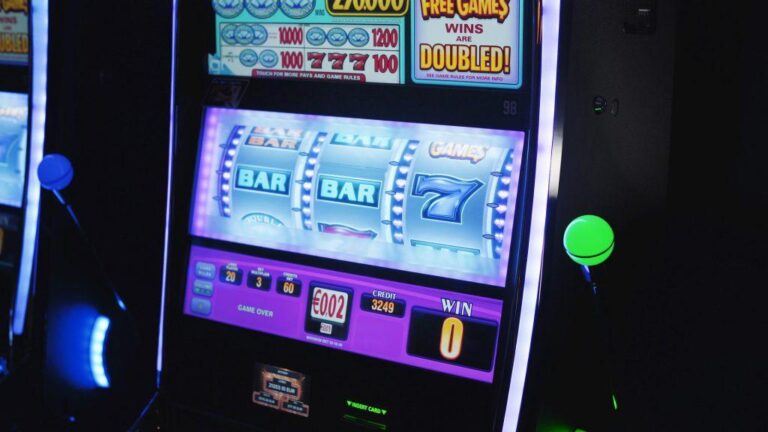Slot machine software is a crucial tool for online casino owners who want to expand their businesses quickly. A quality slot system will allow them to attract more customers and boost their profits.
Slot game development involves many facets, including balancing payout mechanics that entice players without sacrificing the game’s profitability and ensuring fairness in gameplay. Additionally, developing slots that function seamlessly across multiple platforms is no small task.
Random Number Generator
The random number generator (RNG) in slot games is a critical component of the software that determines the odds of winning and losing. It is in perpetual motion, selecting different combinations of numbers every millisecond. When you push the spin button or deposit a coin, the RNG picks one of those numbers and signals the reels to stop spinning.
The RNG also determines whether you will hit a jackpot or lose your last few dollars. This process is completely independent of how many times you’ve played the game, or how hot or cold the coins are, or whether you carry your lucky rabbit’s foot in your pocket.
Creating a successful slot machine requires careful design and development. The game’s payout mechanic must strike the right balance between enticing players and maintaining profitability. It must also be fair and undergo rigorous testing to avoid biases and unfair advantages. Additionally, it should support various platforms to reach a wider audience. This includes mobile, PCs, consoles, and VR. Lastly, it must be secure against hackers and other threats.
Payback Percentage
The payback percentage is a statistic that casinos report to gaming control boards. It is based on the total amount of money that players have wagered in a machine or group of machines over a period of time. It also includes the amount of money that has been paid out in the form of jackpots.
The payout percentage on a slot machine is calculated mathematically and set in the factory when it is written. It is designed to drive results toward the expected average. However, the odds vary for each player and can affect their chances of winning.
For generations, players were told that maximum bets would bring the highest payback percentages. While this was true on traditional three-reel games, it’s no longer the case on video slots and online versions. This is because there are usually incentives built into the pay tables to make players want to max out their bets.
These cheats are known as “hold after nudge,” and increase the likelihood of winning following an unsuccessful nudge. However, they don’t change the payout percentage.
Symbols
Symbols are the most important element of any slot game, offering players a variety of opportunities to win. The more matching symbols on a payline, the higher the payout. They also trigger different bonus games, which can offer bigger payouts and more excitement.
Modern slot machines feature pop culture icons to appeal to a wide range of casino players. These include characters from popular movies and TV shows, rock bands and celebrities. These are more than just simple symbols, however, as they often have a role in the game’s theme and gameplay.
Other types of slot symbols include Wild symbols, Scatter symbols and Multiplier symbols. The former can substitute for other symbols to help you form a winning combination, while the latter multiply your payouts from winning combinations by 2x, 3x or even 6x. Stacked symbols are a relatively new invention that allow players to increase their chances of winning by taking up more space on the reels. This is in contrast to standard symbols, which only appear on one or two of the reels.
Bonus Rounds
A bonus round is a mini-game in a slot machine game where players can win extra payouts. These rounds can be triggered by a wild, scatter or dedicated symbol and can involve a variety of activities. These games can vary from simple to complex, but always add excitement to the gameplay. They may involve a wheel of fortune, or they can ask players to select objects that hide prizes. In most cases, these bonuses do not require an additional bet and are a great way to get more out of your game without spending any extra money.
In addition to traditional bonus games, many online slots feature a gamble feature where players can risk their winnings by guessing the color or suit of a card that hidden. If they guess correctly, their winnings will be doubled. Some bonus games also let players choose different levels to advance, and the more they collect, the higher their prizes will be. These prizes can include free spins, multipliers and additional coin credits. These bonus games can be very lucrative and are often a huge draw for players.
Themes
Themes are a crucial element to slot games, because they help attract players and create a more immersive gaming experience. They can range from common themes like football clubs, classic fruits, exotic locales, affluent lifestyles, and well-known movies to more unique ones such as animal kingdoms or Greek mythology. As a result, online slots offer a huge variety of choices to suit any taste or interest.
Unlike the electromechanical machines of the past, today’s slot machines are computerized and use random number generators to determine whether or not a spin is a winning one. These systems are monitored by independent experts to ensure they are fair and unbiased. Today’s slots also feature numerous symbols, which are designed to fit the theme of each game.
A recent trend in slot games is the use of pop culture icons to appeal to a broader audience. This includes popular musical acts, TV shows and movies, as well as popular characters from history. These games often use video clips and music from the franchises they are based on, as well as other technology to enhance the player’s experience.


